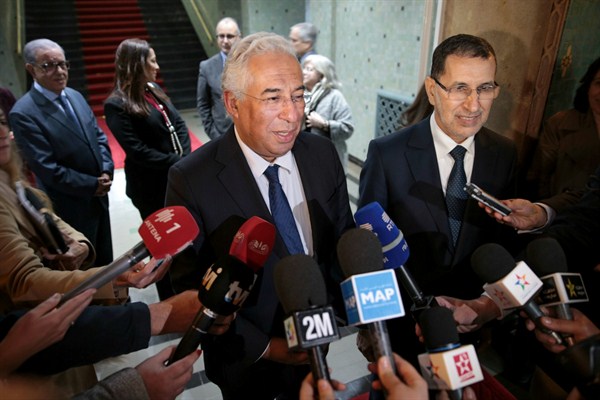In this week’s Trend Lines podcast, WPR’s editor-in-chief, Judah Grunstein, managing editor, Frederick Deknatel, and associate editor, Omar H. Rahman, discuss the ongoing protests in Iran. For the Report, Trish Lorenz talks with Peter Dörrie about how Portugal’s center-left governing coalition has bucked European trends since assuming power in 2015, by softening austerity measures without disrupting the country’s economic recovery.
If you like what you hear on Trend Lines, as well as what you’ve seen on WPR, please think about supporting our work by subscribing. We’re currently offering a 25 percent discount on the first year of an annual subscription to our podcast listeners. To take advantage of it, just enter the word “PODCAST” in the box marked “Coupon or referral code” on our subscription registration form.
Listen:
Download: MP3
Subscribe: iTunes | RSS
Relevant Articles on WPR:
Trend Lines is produced and edited by Peter Dörrie, a freelance journalist and analyst focusing on security and resource politics in Africa. You can follow him on Twitter at @peterdoerrie.
Listeners of the Trend Lines podcast who would like to read more from World Politics Review can sign up for our free twice-weekly email newsletter here. To send feedback or questions, email us at podcast@worldpoliticsreview.com.

